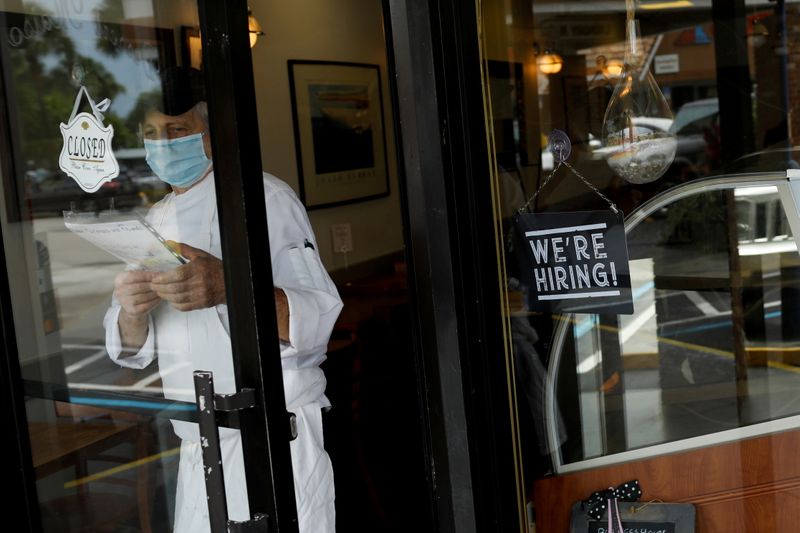By Lucia Mutikani
WASHINGTON (Reuters) - U.S. employers hired far fewer workers than expected in April, likely frustrated by labor shortages, leaving them scrambling to met booming demand as the economy reopens amid rapidly improving public health and massive financial help from the government.
Nonfarm payrolls increased by only 266,000 jobs last month after rising by 770,000 in March, the Labor Department said in its closely watched employment report on Friday.
Economists polled by Reuters had forecast payrolls advancing by 978,000 jobs.
The jobs report, the first since the White House's $1.9 trillion COVID-19 pandemic rescue package was approved in March, will probably do little to change expectations that the economy entered the second quarter with strong momentum and was on track for its best performance this year in almost four decades.
Twelve months ago, the economy purged a record 20.679 million jobs as it reeled from mandatory closures of nonessential businesses to slow the first wave of COVID-19 infections. New claims for unemployment benefits have dropped below 500,000 for the first-time since the pandemic started.
Americans over the age of 16 are now eligible to receive the COVID-19 vaccine, leading states like New York, New Jersey and Connecticut to lift most of their coronavirus capacity restrictions on businesses.
But the resulting burst in demand, which contributed to the economy's 6.4% annualized growth pace in the first quarter, the second-fastest since the third quarter of 2003, has triggered shortages of labor and raw materials.
From manufacturing to restaurants, employers are scrambling for workers. A range of factors, including parents still at home caring for children, coronavirus-related retirements and generous unemployment checks, are blamed for the labor shortages. The moderate pace of hiring could last at least until September when the enhanced unemployment benefits run out.

The labor market remains supported by very accommodative fiscal and monetary policy. President Joe Biden plans to spend another $4 trillion on education and childcare, middle- and low-income families, infrastructure and jobs. The Federal Reserve has signaled it intends to leave its benchmark interest rate near zero and continue to pump money into the economy through bond purchases for a while.
The unemployment rate rose to 6.1% in April from 6.0% in March. The jobless rate has been understated by people misclassifying themselves as being "employed but absent from work." Millions of Americans remain out of work and many have permanently lost jobs because of the pandemic.